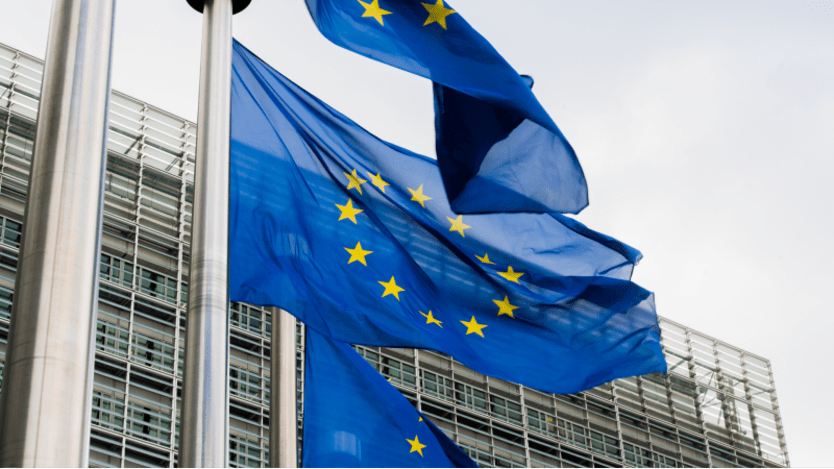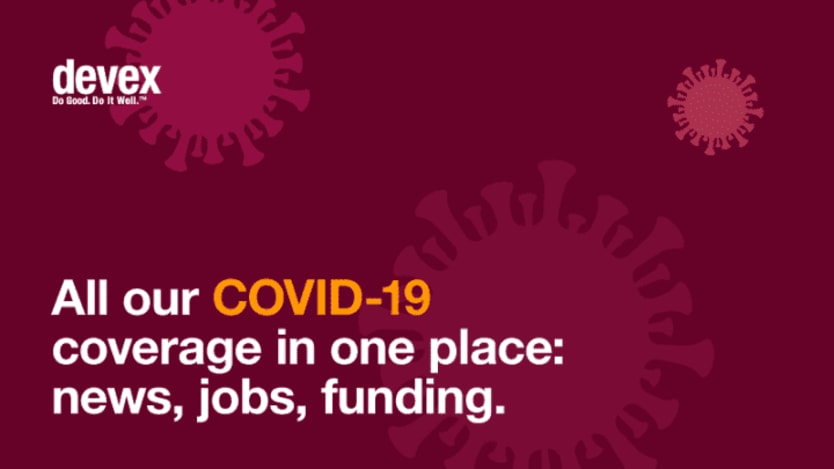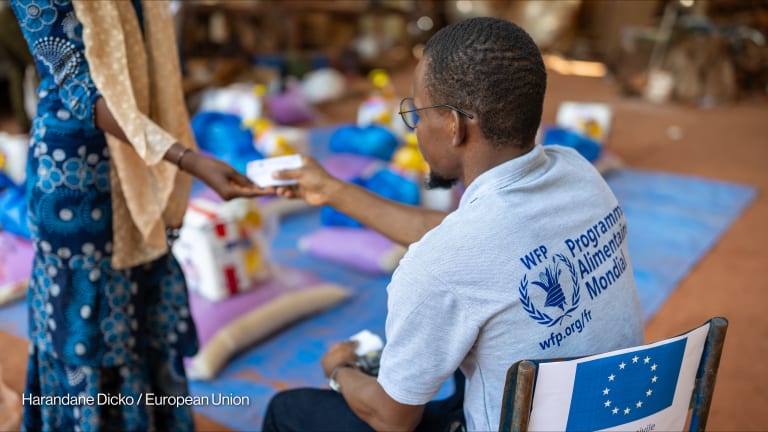
BRUSSELS — The European Union wants a common metric for donors’ contributions to the global fight against COVID-19, the bloc’s top development civil servant said Wednesday.
“We have brought the idea to the [Organisation for Economic Co-operation and Development], which is precisely the institution which has a very solid track record on developing markers,” Koen Doens, director-general of DEVCO, the European Commission’s development department, said in a virtual panel discussion Wednesday.
The OECD’s Development Assistance Committee, run by a Paris-based secretariat, includes 30 high-income aid donors, including the EU, and sets rules on what counts as official development assistance, as well as the various thematic categories.
On Monday, development leaders from EU member states welcomed the establishment of a joint monitoring system for their own spending, as well as “a possible COVID-19 marker,” which would cover both European and non-European donors, “to ensure accountability and transparency in the use of resources mobilised and allocated.”
"The idea to report separately on COVID-19-related spending makes a lot of sense,” Jan van de Poel, policy and advocacy manager at the European Network on Debt and Development, or Eurodad, told Devex in an email Thursday.
“As the EU and its Member States shore up funds to respond to the pandemic, there is a risk that much-needed resources will be directed away from urgent priorities in other areas. A COVID-19 marker should allow us to see where resources to respond to the pandemic are actually going and whether other priorities are losing out.”
The OECD-DAC working party on development finance statistics is due to discuss ways of tracking COVID-19 related expenditures at a meeting on June 22.
If approved, the tracking system would cover all DAC donors, which as well as the EU includes the United States, Japan, and others. Non-DAC donors, such as China and India, could report their spending on a voluntary basis.
Doens said it would be “unwise” to limit the marker only to the EU, as a greater uptake could foster transparency among “a more broader club of development finance providers.”
OECD’s initial response to the idea was “quite positive,” Doens said Wednesday, adding that “we are now looking with them at how this can be properly developed at a large scale.”
However, an EU member state source said it is not certain the idea of the marker will prevail. Some countries, inside or outside the EU, could raise concerns about the additional reporting burden and ambiguities over possible double-counting in areas such as health and social protection, they said.
An official from a different member state pointed out that while it might take years for the DAC to agree on the criteria for a new marker, the EU and its member states “need to show results quickly if we are to win the information ‘war’ against some other players with their mask diplomacy.”
Resentment is still simmering in Brussels at China promoting its supply of medical equipment to Europe, after having asked Europe to downplay its assistance to China earlier in the year. A source close to the DAC said the hope was for the new tracking method to begin immediately.
So far, “Team Europe” — the commission’s term for the combined firepower of itself, member states, the European Investment Bank and the European Bank for Reconstruction and Development — is redirecting €35.87 billion ($40.6 billion), mostly from existing development programs, to the pandemic response.
The joint monitoring system, proposed by the commission, is designed to track these European commitments, though an EU official told Devex in an email that the details still need to be finalized.
“The idea is that all Member States and the EU agree to use the same platform to report, track and trace the expenditure done this year in the fight against the pandemic,” the same official wrote. “It will help to provide transparency and accountability on Team Europe’s actions.”
The EU has sought a leading role in the multilateral response to the pandemic. Stavros Lambrinidis, the EU ambassador to the United States, told the virtual event Wednesday that following an EU-led pledging summit last month, more than €10 billion has now been raised for international organizations working on vaccines, preventive medicines and treatments.
Another event on June 27, this time also targeting philanthropies and businesses, is designed to “sustain the mobilization,” the EU official told Devex.

Search for articles
Most Read
- 1
- 2
- 3
- 4
- 5








